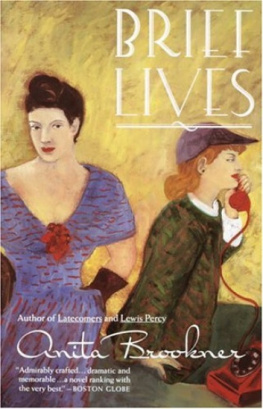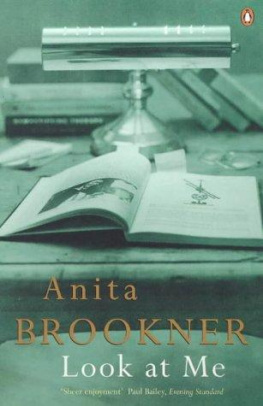Anita Cleare - The Work/Parent Switch
Here you can read online Anita Cleare - The Work/Parent Switch full text of the book (entire story) in english for free. Download pdf and epub, get meaning, cover and reviews about this ebook. publisher: Ebury Publishing, genre: Children. Description of the work, (preface) as well as reviews are available. Best literature library LitArk.com created for fans of good reading and offers a wide selection of genres:
Romance novel
Science fiction
Adventure
Detective
Science
History
Home and family
Prose
Art
Politics
Computer
Non-fiction
Religion
Business
Children
Humor
Choose a favorite category and find really read worthwhile books. Enjoy immersion in the world of imagination, feel the emotions of the characters or learn something new for yourself, make an fascinating discovery.
- Book:The Work/Parent Switch
- Author:
- Publisher:Ebury Publishing
- Genre:
- Rating:5 / 5
- Favourites:Add to favourites
- Your mark:
- 100
- 1
- 2
- 3
- 4
- 5
The Work/Parent Switch: summary, description and annotation
We offer to read an annotation, description, summary or preface (depends on what the author of the book "The Work/Parent Switch" wrote himself). If you haven't found the necessary information about the book — write in the comments, we will try to find it.
The Work/Parent Switch — read online for free the complete book (whole text) full work
Below is the text of the book, divided by pages. System saving the place of the last page read, allows you to conveniently read the book "The Work/Parent Switch" online for free, without having to search again every time where you left off. Put a bookmark, and you can go to the page where you finished reading at any time.
Font size:
Interval:
Bookmark:


Anita Cleare MA AdvDip is a parenting speaker, writer and coach who supports working parents to balance successful careers with being a parent. Anita has an academic background in developmental psychology alongside extensive professional experience supporting families. She speaks at events for working parents across the UK and internationally, and delivers parenting seminars and one-to-one support. Her advice is regularly featured in the media including The Sunday Times Magazine, the BBC and the Telegraph. Anita writes the award-nominated Thinking Parenting blog. To learn more, visit: anitacleare.co.uk.
To superheroes everywhere.
MOST WORKING PARENTS feel like we are running just to stand still. We want to be good parents. We want to get parenting right. But we have limited time, limited energy, limited patience and too much to do. And we are seldom at our best at the end of a working day when the parenting shift kicks in.
Modern family life has undergone a seismic shift in the last two decades. The majority of parents in the UK now work. We work longer hours and commute further to work, and we are frequently stretched to the limits. A typical working parents day is tightly timed between drop-offs and pick-ups. And, with little slack for unforeseeables, this finely balanced juggling act is quickly derailed when our child refuses to cooperate or their big emotions bubble over. At the end of the day, we rush home to herd our children through a relentless timetable of clubs, homework, dinner and bath, while all the time feeling guilty because we know they just want our attention (but we just want them to stick to the schedule and go to bed).
Modern parents are working more and parenting more and, with only a limited number of hours available, somethings got to give. For many working parents, its our own well-being thats being jettisoned. Huge swathes of family time now revolve around activities aimed at children (petting farms, theme parks, birthday parties, childrens sports) rather than relaxation time for adults. Every Sunday as a child, I was carted to a cricket ground and left to my own devices on a random slide, swing or patch of grass while my dad captained the second eleven. Now adults are much more likely to spend their weekends tagging along to childrens sports.
Yet working parents are guilt-ridden about lack of time with our children. We pack extra parenting into every opportunity. We buy toys and gadgets that claim to boost childrens development. We spend our non-working hours ferrying children to musical, sporting and educational activities to give them the best start in life. We want the world for our kids, so we try to carve out the straightest route to happiness for them. We beaver away removing obstacles from their paths to save them from discomforts and difficult experiences. We wish for them always to fit in and do well and never to be left out or be sad or upset. We work even longer hours or even further away so we can live in a better house or send them to a better school or just afford all those clubs and sports we take them to in our free time. Anxious that we are not doing enough, we try to do more and more.
But we still worry it isnt enough. At best, working parents feel like we are keeping our heads above water. At worst, many of us just feel like were failing. Our children are certainly not grateful, despite our gargantuan efforts. Because, ironically, although parents are prioritising children more, we are understanding them less. Children are getting fewer of those things that really do help their development, like outdoor free play, risk-taking, conversational turns and consistent boundaries. With too much guilt and no energy, we dont have the patience to tune in to how our children are thinking and feeling or work out how to motivate them or positively manage their difficult behaviour. We are so shattered from trying to do it all that its almost impossible to stick to our guns and make good parenting decisions. Or, if we do stand firm, we feel like the perpetual Bad Guy. There are just so many decisions to make, and all of them feel crucial.
This book is about moving the goalposts. Its about doing less, not more. Its about parenting in a way that is good for your children but also good for you, which builds your happiness and nurtures your well-being rather than stretching you so thin that you are in danger of breaking. Its about parenting smarter by understanding how your children think and what they really need from you.
Maybe you are a mum heading back to work who wants advice on how to squeeze being a parent into fewer hours. Or perhaps youre a dad whos fallen into a stressed-out parenting hole and wants to stop shouting your kids out of the house in the mornings. Maybe you only have a few hours a week with your children and youre struggling to connect. Or you are just tired of going around in circles trying to fit more work and more parenting into a finite number of hours. This is the book for you.
The Work/Parent Switch brings together three essential elements for being a happy working parent:
- A clear picture of what children really need, what makes them tick and what drives childrens development, drawn from developmental psychology.
- Practical tools and hands-on parenting solutions from my real-world work supporting families.
- An actionable blueprint for how you can enhance your personal well-being based on the happiness-building ideas of positive psychology.
This book collects in one place all the proven, practical strategies that I have witnessed make such a difference to the lives of the parents I work with. Its big ambition is to help you build a happy family life, but the focus is on small doable changes and how you can use those little bits of time when work is done to create a positive family environment; an environment you all want to be a part of. My goal is to empower all working parents to have a family life that is low on conflict, high in warmth and good for childrens development. But also good for you. A family that balances adults and childrens needs, in which kids can thrive and parents flourish.
Positive psychology is all about understanding what makes life feel worthwhile so that we can do more of it. It focuses on positive experiences, states and traits and asks how we can create more of these in our lives in order to optimise our well-being. Sounds simple, doesnt it?! But positive psychology becomes a bit trickier when it comes to parenting. Because parenting is not just about the feel-good factor. Parents have a responsibility to teach children the skills they need to be successful adults. And that inevitably involves setting boundaries and responding when children get things wrong.
Managing childrens behaviour when you are tired and stressed is doubly difficult. When our energy reserves are low and our stress levels are high, its easy to slip into negative habits, like constantly battling with your children, resorting to shouting or just giving in. Effective discipline strategies are a game changer for working parents. My aim is not only to give you the practical tools to parent positively, but also to help you step inside your childs mind and understand what drives their behaviour. Because when we understand where our children are coming from, it makes it much easier to connect with their way of thinking and respond to their behaviour in a thoughtful and intentioned way.
Next pageFont size:
Interval:
Bookmark:
Similar books «The Work/Parent Switch»
Look at similar books to The Work/Parent Switch. We have selected literature similar in name and meaning in the hope of providing readers with more options to find new, interesting, not yet read works.
Discussion, reviews of the book The Work/Parent Switch and just readers' own opinions. Leave your comments, write what you think about the work, its meaning or the main characters. Specify what exactly you liked and what you didn't like, and why you think so.

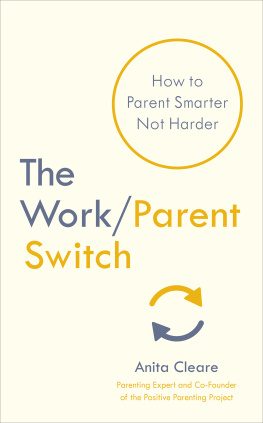

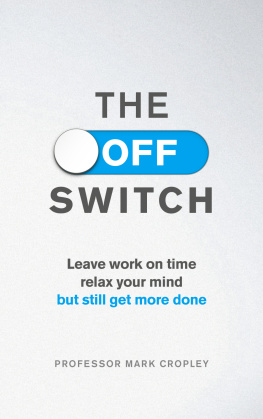
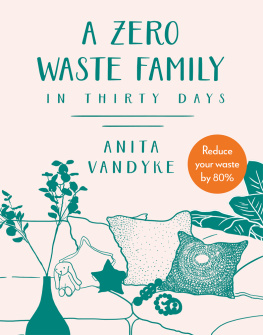
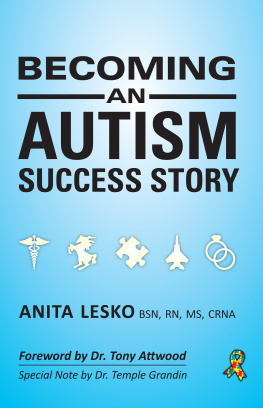
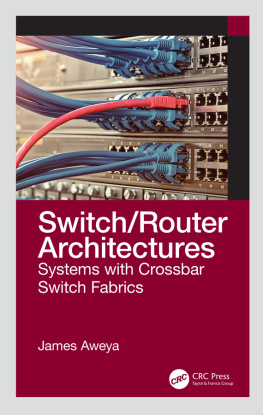

![Anita Anand - The Library Book. Anita Anand ... [Et Al.]](/uploads/posts/book/40194/thumbs/anita-anand-the-library-book-anita-anand-et.jpg)

